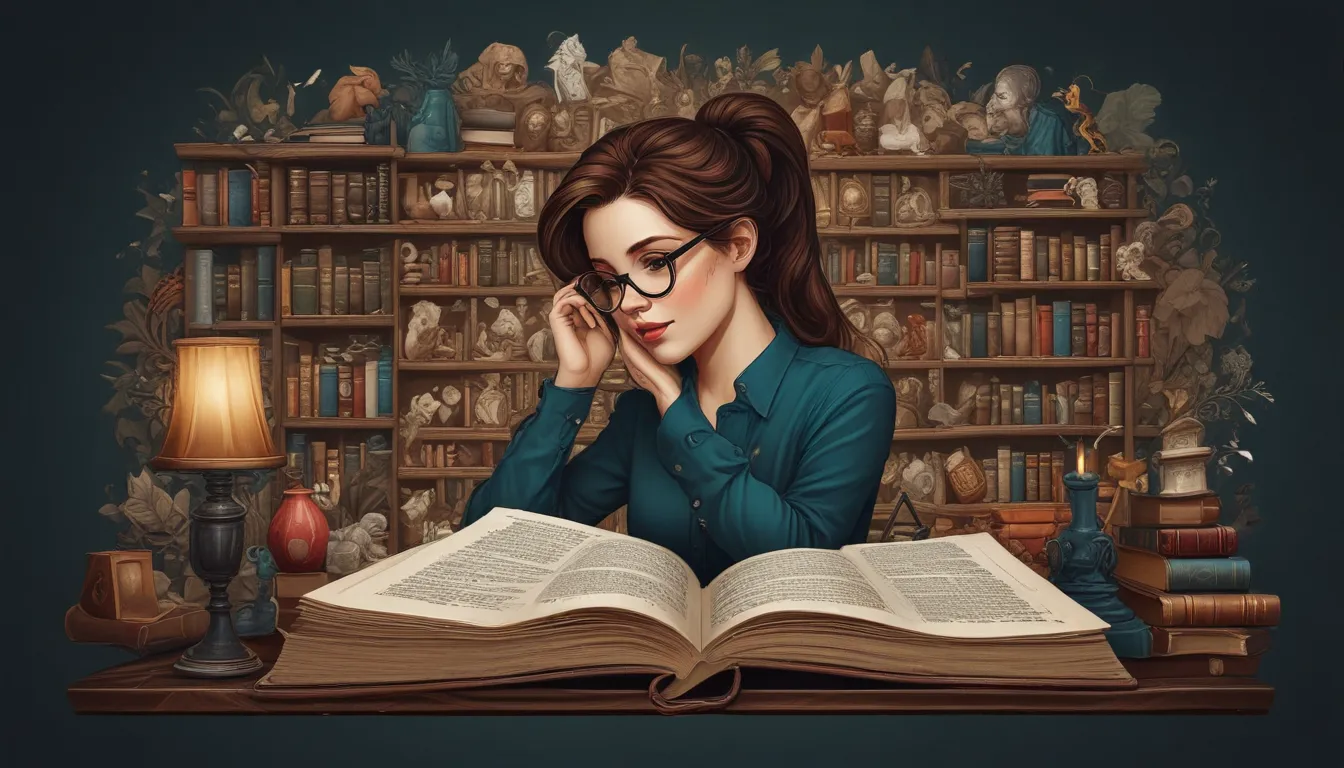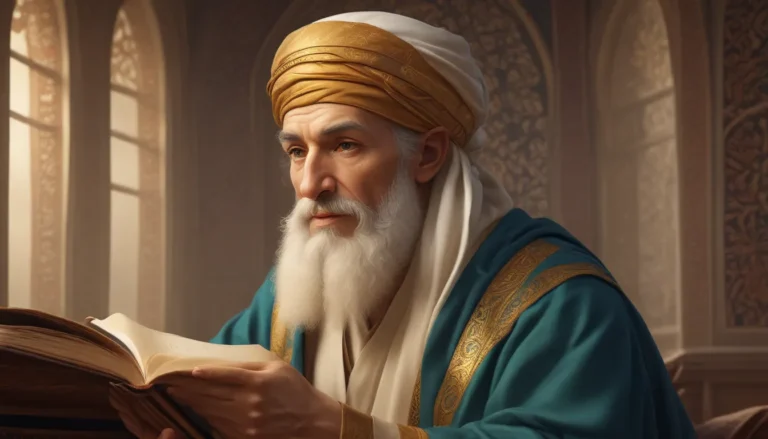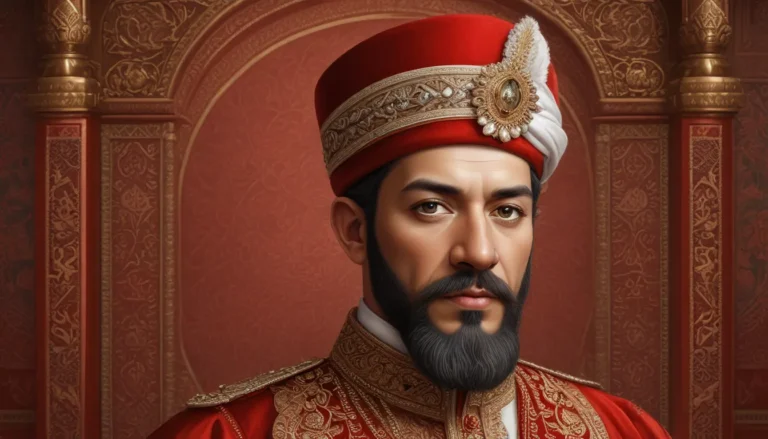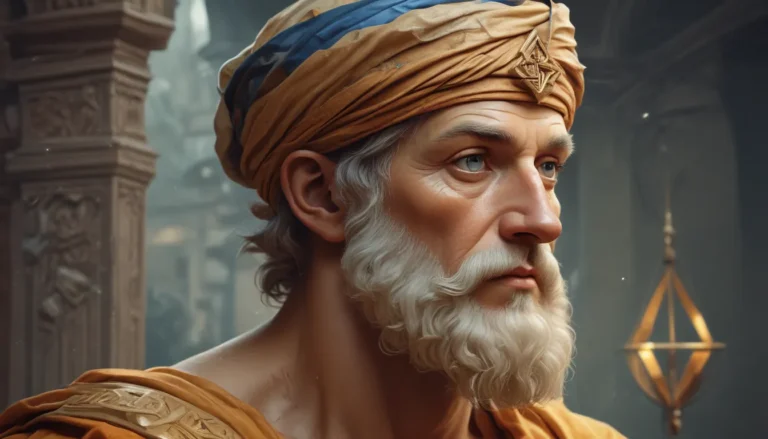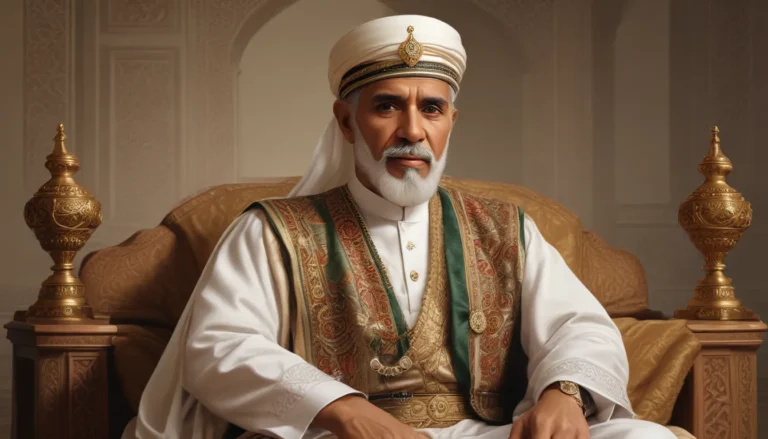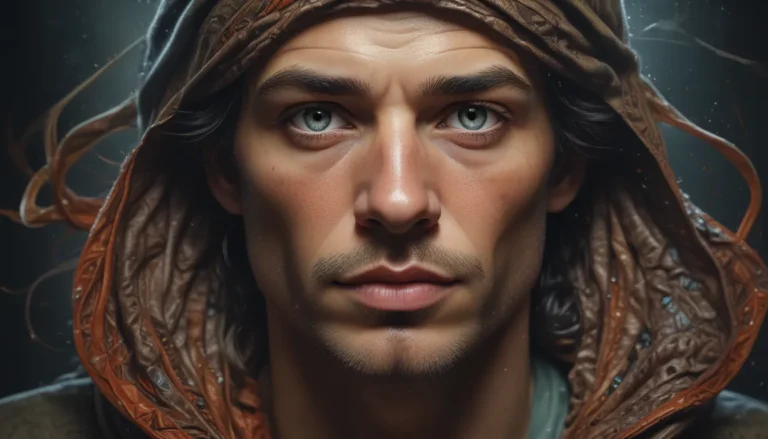The images in our articles may not match the content exactly. They are used to grab your attention, not to show the exact details in the text. The images complement the text but do not replace it.
Literature has a magical way of transcending time and space, allowing readers to immerse themselves in different worlds and experiences. The works of famous authors have shaped the landscape of literature, leaving an indelible mark on society. Join us on a journey to explore the fascinating lives and works of some of the most iconic authors in history.
Louisa May Alcott: A Tale of Little Women
Louisa May Alcott, an American author known for her prose and poetry, may have started her career under pen names, but her magnum opus, “Little Women,” stands as a timeless classic. The coming-of-age story of Jo and her sisters, based on Alcott’s own childhood, continues to resonate with readers worldwide. Her other works, such as “Little Men,” “Jo’s Boys,” and “Eight Cousins,” further highlight her talent for storytelling.
Dante Alighieri: The Divine Journey Through Hell, Purgatory, and Heaven
Dante Alighieri, a Florentine poet of the 13th century, remains one of the most revered authors in history. His epic poem, “Divine Comedy,” takes readers on a journey through the realms of Hell, Purgatory, and Heaven, establishing Italian literature as a force to be reckoned with. Beyond his masterwork, Alighieri’s “La Vita Nuova” and “Convivio” showcase his poetic prowess and enduring legacy.
Jane Austen: A Satirical Glimpse into Regency Era Society
Jane Austen, an English novelist celebrated for her wit and social commentary, continues to enthrall readers with timeless classics like “Pride and Prejudice,” “Sense and Sensibility,” and “Emma.” Her exploration of the societal pressures faced by women in the Regency era, combined with humor and irony, cements her status as one of the greatest female authors in history.
William Blake: Painting Poetry with Words
William Blake, an English author renowned for his poetry and art, belonged to the Romantic movement of his time. His collection “Songs of Innocence” and its companion “Songs of Experience” showcase his unique blend of poetry and illustration. Blake’s visionary works, including “Visions of the Daughters of Albion,” continue to captivate audiences with their ethereal beauty.
Emily Brontë: The Enigmatic Bard of “Wuthering Heights”
Emily Brontë, an English author known for her singular novel “Wuthering Heights,” remains a literary enigma. Using the pen name Ellis Bell, Brontë delved into themes of revenge and passion in her iconic work, which continues to mesmerize readers with its poetic language and haunting narrative. Her collaborative collection of poems with her sisters, “Poems by Currer, Ellis, and Acton Bell,” adds to her mystique as a literary genius.
Dan Brown: Unraveling Mysteries of Cryptography and Conspiracies
Dan Brown, an American author revered for his thriller novels, has carved a niche for himself in the literary world with works like “Angels & Demons,” “The Da Vinci Code,” and “The Lost Symbol.” Brown’s exploration of cryptic puzzles and religious intrigues has garnered him a loyal following, despite controversies surrounding his portrayal of certain themes. His gripping narratives keep readers on the edge of their seats, craving more.
Lewis Carroll: A Wonderland of Childhood Fantasies
Lewis Carroll, the British author behind the beloved “Alice’s Adventures in Wonderland,” captivates readers with his whimsical tales and surreal narratives. Carroll’s magical world, filled with fantastical creatures and nonsensical adventures, continues to enchant audiences of all ages. His sequel, “Through the Looking-Glass,” and iconic poems like “Jabberwocky” stand as testaments to his imaginative genius.
Barbara Cartland: The Queen of Romance Novels
Dame Mary Barbara Hamilton Cartland, a British author renowned for her romance novels, holds the record for the most novels published in a single year. Despite criticisms of formulaic storytelling, Cartland’s works, including “A Hazard of Hearts” and “Jigsaw,” remain cherished by fans worldwide. Her prolific writing career, spanning over 700 books across various genres, solidifies her legacy as the queen of romance literature.
Anton Chekhov: A Master of Short Stories and Plays
Anton Pavlovich Chekhov, a Russian author celebrated for his plays and short stories, is revered as a pioneer of modernism in theater. His poignant narratives, including “A Dreary Story,” “Ivanov,” and “The Bear,” resonate with audiences for their profound insights into the human condition. Chekhov’s minimalist style and lyrical prose continue to inspire generations of writers and playwrights.
Agatha Christie: The Queen of Crime Fiction
Dame Agatha Christie, an English author hailed as the best-selling novelist of all time, revolutionized the detective fiction genre with her iconic works. From “The Mysterious Affair at Styles” to “And Then There Were None,” Christie’s intricate plots and memorable characters have enthralled readers for decades. Her enduring legacy as the queen of crime fiction is a testament to her storytelling prowess and timeless appeal.
Roald Dahl: Whimsical Tales for Children and Adults Alike
Roald Dahl, a British author renowned for his children’s stories and dark humor, enchants readers with classics like “James and the Giant Peach,” “Charlie and the Chocolate Factory,” and “Matilda.” His fantastical narratives, melding fantasy and reality, have captivated audiences of all ages. Dahl’s creative genius shines through in his imaginative worlds and memorable characters, making him a beloved figure in children’s literature.
Charles Dickens: Chronicler of Victorian Realities
Charles John Huffman Dickens, an English author synonymous with the Victorian era, immortalized social and economic injustices in his timeless works. From “A Christmas Carol” to “Oliver Twist” and “A Tale of Two Cities,” Dickens’s narratives shed light on the plight of the poor and marginalized in society. His evocative prose and vivid characterizations continue to resonate with readers, earning him a place among the greatest authors of all time.
Emily Dickinson: A Reclusive Poet of Immortal Words
Emily Elizabeth Dickinson, an American poet revered for her introspective verses, remains a literary icon despite her reclusive nature. Dickinson’s exploration of themes like death and immortality in her poems reveals a profound understanding of the human experience. Her posthumous collection, “The Poems of Dickinson,” showcases her unfiltered voice and raw emotions, captivating readers with her poetic brilliance.
John Donne: A Poet of Love, Death, and Paradoxes
John Donne, an English poet renowned for his sonnets and love poems, delved into themes of love, sexuality, and religion in his works. Donne’s intricate exploration of life, death, and human relationships, as seen in “A Valediction: Forbidding Mourning” and his “Holy Sonnets,” showcases his mastery of language and metaphysical themes. Despite financial struggles, Donne’s poetic legacy endures, inspiring generations of poets and readers alike.
Arthur Conan Doyle: The Birth of a Literary Detective
Sir Arthur Ignatius Conan Doyle, a British author famed for creating the iconic Sherlock Holmes, revolutionized the detective fiction genre with his thrilling narratives. From “A Study in Scarlet” to “The Hound of the Baskervilles,” Doyle’s enigmatic detective and his loyal companion, Dr. Watson, captivated audiences with their deductive prowess and compelling adventures. Doyle’s enduring legacy as the father of modern detective fiction solidifies his place among the literary greats.
T.S. Eliot: The Modernist Poet of Profound Reflections
Thomas Stearns Eliot, an acclaimed British poet celebrated for his contributions to modernist poetry, dazzles readers with works like “Ash Wednesday,” “The Hollow Men,” and “Burnt Norton.” Eliot’s introspective musings on life, death, and the human condition echo through his poetic verses, inviting readers into a world of profound reflection and existential inquiry. His Nobel Prize-winning oeuvre stands as a testament to his literary genius and enduring impact on modern poetry.
Anne Frank: A Voice Silenced by Tragedy
Annelies Marie “Anne” Frank, a German-Dutch teenager whose diary became a poignant testament to the horrors of the Holocaust, remains a symbol of resilience and hope. Despite her tragic fate, Anne’s “Diary of a Young Girl” offers a glimpse into her life and struggles during the German occupation, inspiring generations with her unwavering spirit and profound wisdom. Anne’s legacy lives on through her enduring words, reminding us of the enduring power of storytelling in the face of adversity.
Robert Frost: The Poet Laureate of American Literature
Robert Lee Frost, an iconic American poet renowned for his evocative verses, captures the essence of human experience in works like “A Boy’s Will,” “After Apple-Picking,” and “In the Clearing.” Frost’s lyrical exploration of nature, love, and mortality resonates with readers, earning him four Pulitzer Prizes for Poetry and a Congressional Gold Medal. His enduring presence in American literature cements his status as a poet laureate of profound introspection and poetic beauty.
Ernest Hemingway: The Literary Giant of Modernist Prose
Ernest Miller Hemingway, an American author hailed for his concise prose and profound storytelling, mesmerizes readers with works like “A Farewell to Arms,” “A Clean Well-Lighted Place,” and “A Moveable Feast.” Hemingway’s sparse yet evocative style, coupled with his exploration of themes like war, love, and loss, resonates with readers worldwide, earning him numerous accolades, including the Pulitzer Prize for Fiction and the Nobel Prize in Literature. Hemingway’s enduring legacy as a literary giant of modernist prose transcends time and genre, captivating audiences with his timeless tales of human resilience and redemption.
Franz Kafka: The Master of Existential Absurdity
Franz Kafka, an Austrian author renowned for his unsettling and existential works, delves into themes of isolation and alienation in masterpieces like “The Metamorphosis,” “The Trial,” and “The Castle.” Kafka’s uncanny narratives blur the lines between reality and unreality, laying bare the absurdity of human existence in a world devoid of meaning. His impact on literature is so profound that the term “Kafkaesque” is used to describe works imbued with his distinct blend of unease and existential dread.
Stephen King: The Maestro of Modern Horror Fiction
Stephen Edwin King, the undisputed “King of Horror,” reigns supreme in the realm of modern horror fiction with chilling tales like “Carrie,” “It,” and “The Shining.” King’s uncanny ability to tap into primal fears and otherworldly terrors has earned him a devoted following and numerous accolades, including the Bram Stoker Awards and World Fantasy Awards. His prolific output and enduring influence on the horror genre solidify his status as a master storyteller whose macabre visions continue to haunt and mesmerize readers around the globe.
H.P. Lovecraft: Crafting Cosmic Nightmares and Eldritch Horrors
Howard Phillips Lovecraft, an American author hailed as a pioneer of weird fiction, weaves tales of cosmic horror and otherworldly dread in works like “At the Mountains of Madness” and “The Call of Cthulhu.” Lovecraft’s nightmarish visions and grotesque monsters, collectively known as Lovecraftian horror, have left an indelible mark on the horror genre, inspiring generations of writers and filmmakers with his dark and foreboding mythos. His enduring legacy as a purveyor of cosmic nightmares cements his status as a literary luminary in the realm of speculative fiction.
George Orwell: Champion of Truth and Social Justice
George Orwell, the nom de plume of Eric Arthur Blair, stands as a preeminent voice of truth and conscience in literature, with works like “Animal Farm” and “Nineteen Eighty-Four” offering scathing critiques of totalitarianism and societal control. Orwell’s prescient warnings about the dangers of authoritarianism and propaganda have resonated with readers for decades, leading to the coining of the term “Orwellian” to describe oppressive regimes and surveillance states. His enduring legacy as a champion of social justice and individual freedom elevates him to the pantheon of literary greats.
Edgar Allan Poe: Master of Macabre and Gothic Poetry
Edgar Allan Poe, an American author celebrated for his dark and eerie tales, delves into the realms of mystery and madness in works like “The Murders in the Rue Morgue” and “The Raven.” Poe’s mastery of the macabre and gothic genres, coupled with his haunting imagery and evocative prose, has left an indelible mark on American literature, earning him a place among the greats in the Hall of Fame for Great Americans. His enduring legacy as a purveyor of psychological horror and Gothic poetry continues to captivate readers with its mesmerizing blend of beauty and terror.
J.K. Rowling: Wizarding Worlds and Literary Magic
J.K. Rowling, the British author behind the beloved “Harry Potter” series, weaves a tapestry of wizarding wonders and fantastical adventures in her iconic novels. From “Harry Potter and the Philosopher’s Stone” to the “Cormoran Strike” series, Rowling’s imaginative storytelling and intricate world-building have captivated readers of all ages, making her one of the best-selling authors in history. Her enduring legacy as a literary luminary and champion of literacy and imagination elevates her to the realm of literary legends.
William Shakespeare: The Bard of Avon and Master Playwright
William Shakespeare, the eminent English playwright and poet, remains an unparalleled figure in the annals of literary history, with works like “Romeo and Juliet” and “Hamlet” standing as timeless classics. Shakespeare’s versatility and genius as a writer, spanning over 30 plays, 150 sonnets, and narrative poems, have left an indelible mark on literature, inspiring countless adaptations and interpretations across different mediums. His enduring legacy as the national poet of England cements his status as the Bard of Avon and a literary giant for the ages.
Percy Bysshe Shelley: Radical Poet and Political Visionary
Percy Bysshe Shelley, an English poet lauded for his radical views and political activism, invigorates readers with works like “Ozymandias,” “A Defence of Poetry,” and “To a Skylark.” Shelley’s impassioned verses and philosophical musings on social justice and freedom echo through his poetry, inspiring generations with his visionary ideals and poetic beauty. His enduring legacy as a champion of romanticism and political dissent solidifies his reputation as a poet of profound reflection and revolutionary fervor.
J.R.R. Tolkien: The Father of Modern Fantasy Literature
John Ronald Reuel Tolkien, a South African-born author and professor, revolutionizes the fantasy genre with masterworks like “The Lord of the Rings” and “The Hobbit.” Tolkien’s meticulous world-building and epic storytelling transport readers to fantastical realms filled with rich lore and enduring themes of heroism and sacrifice. His enduring legacy as the father of modern fantasy literature cements his status as a literary luminary whose creative vision continues to inspire and enchant readers across generations.
Oscar Wilde: A Provocateur of Artistic Expression
Oscar Wilde, an Irish playwright and poet, challenges societal norms and conventions in works like “The Picture of Dorian Gray,” “Salome,” and “The Ballad of Reading Gaol.” Wilde’s wit and irreverence, coupled with his exploration of aestheticism and hedonism, have captivated readers with their audacious themes and subversive storytelling. His enduring legacy as a champion of artistic expression and individuality elevates him to a literary icon of unrivaled brilliance and audacity.
Virginia Woolf: A Stream of Consciousness and Feminist Vanguard
Virginia Woolf, an English author and champion of stream of consciousness narrative, captivates readers with works like “Mrs. Dalloway,” “To the Lighthouse,” and “Orlando.” Woolf’s innovative storytelling and feminist perspectives, infused with her own struggles and experiences, offer readers a glimpse into the complexities of human consciousness and identity. Her enduring legacy as a trailblazer of modern literature and women’s rights advocacy elevates her to the pantheon of literary giants, inspiring generations with her bold voice and visionary prose.
In conclusion, the world of literature is enriched by the remarkable contributions of these iconic authors, whose timeless works continue to inspire and captivate readers across the globe. As we delve into the lives and legacies of these literary luminaries, we embark on a journey of discovery and enlightenment, celebrating the enduring power of storytelling and the indelible impact of words that transcend time and space. Join us on this literary adventure as we pay homage to the unforgettable authors who have shaped the tapestry of human experience and imagination.
Journey Through Literary History with Unforgettable Authors!
Our commitment to delivering trustworthy and engaging content is at the heart of what we do. Each fact on our site is contributed by real users like you, bringing a wealth of diverse insights and information. To ensure the highest standards of accuracy and reliability, our dedicated editors meticulously review each submission. This process guarantees that the facts we share are not only fascinating but also credible. Trust in our commitment to quality and authenticity as you explore and learn with us.
